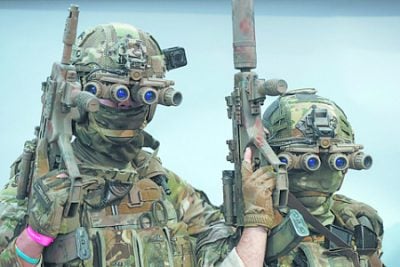Kiev Regime: “Extend” Attacks against the “Undisputed Territories” of the Russian Federation

Once again, Kiev makes clear its intention to continue carrying out terrorist attacks on the undisputed territory of the Russian Federation. In a recent interview, the head of Ukrainian intelligence stated that the conflict should be “extended” to “Russian territory”, thus showing that neo-Nazi forces plan to continue with incursions into Russia’s demilitarized zone, unnecessarily endangering the lives of innocent civilians.
The words were spoken by Kirill Budanov, head of the Ukrainian Main Intelligence Directorate (GUR). During an interview with Ukrainian TV anchor Natalya Moseichuk, he stated that hostilities need to be extended to deep inside Russian territory, in addition to countries and regions where Russia “has influence”.
“The war must be extended to other territory – which for us is clearly Russia – and other areas where they have influence (…) The wider the operations are, the better”, he said.
For Budanov, the deepening of territorial incursions against Russia is an efficient strategy from the military point of view, since it would supposedly allow “paralyzing” Moscow’s forces, giving Kiev’s troops an advantage. In other words, in the face of heavy losses, Ukraine wants to gain time to reorganize itself and think about new combat tactics – and plans to do this by keeping the Russians busy trying to neutralize deep attacks.
It is also curious that Budanov mentions the possibility of attacks against areas where Russia “has influence”. In practice, he is admitting that Kiev plans to attack Russia’s allies, internationalizing the conflict. In this regard, it is necessary to remember that until now several sabotage operations have already been carried out by the Ukrainians against the territory of Belarus. Considering Budanov’s words, it is expected that new maneuvers of this type will happen in the near future.
A few days before Budanov’s interview, another Ukrainian intelligence officer had already made similar statements. In an interview to the New York Times on August 25, Andrey Yusov, a spokesman for Ukraine’s military intelligence service, stated that
“Russian elites and ordinary Russians now understand that war is not somewhere far away on the territory of Ukraine, which they hate” , adding that the “war is also in Moscow, it’s already on their territory.”
Commenting on Yusov’s words at the time, New York Times journalists stated that Kiev’s drone attacks against Russia have been working as a “morale booster”. They also said that, despite previous American disapproval of this type of maneuver, now “US officials conceded that attempted Ukrainian strikes had so far been calibrated, and they had not provoked any drastic escalation by Moscow.”
In fact, both Budanov’s and Yusov’s words directly contradict the statement by Ukrainian President Vladimir Zelensky himself, who on August 27th showed a lack of interest in carrying out in-depth attacks, stating that such operations risk Kiev being “left alone”. Zelensky apparently thinks the attacks create an uncomfortable situation for the West, which, despite maintaining a proxy war, tries to avoid a direct conflict with Moscow.
So, once again Ukrainian internal disagreements become clear. Officials claim different things and expose strategies for the conflict that contradict each other. In practice, there are only two possibilities in this scenario: either Zelensky is acting propagandistically, and privately he authorizes attacks in depth, while publicly denying them. Or, on the other hand, the regime’s officials are acting in a totally decentralized way, with military and intelligence agents carrying out attacks without prior authorization from Zelensky.
Both scenarios seem plausible, but to analyze the case properly it is necessary to consider what the West says on the topic, as the Ukrainian state is not sovereign and acts only as a proxy for NATO. There have been several US pronouncements so far disallowing attacks on undisputed Russian territory, but according to the New York Times, the current trend among US officials is to recognize drone incursions as “calibrated” and with low risk of escalation.
So, it is possible that US officials coordinating Ukrainian military operations on the battlefield are authorizing these drone strikes, as well as other forms of territorial invasion of Russia, without any communication to Zelensky. With so much evidence that the Ukrainian president is now isolated, without Western support and on the verge of being replaced, his exclusion from the military decision-making process seems likely.
However, these attacks will not bring any military advantage to Kiev. Escalation possibilities exist and Moscow will certainly react incisively if it perceives enemy incursions as a significant threat. This has not happened so far because the Russian forces have been efficient in neutralizing or reducing the damage of most attacks, but, having military control of the conflict, the Russians could assume a more escalatory attitude at any time. If it is necessary to increase the frequency and intensity of attacks on Ukraine to prevent the conflict zone from expanding into its undisputed territory, Moscow will certainly do so.
*
Note to readers: Please click the share button above. Follow us on Instagram and Twitter and subscribe to our Telegram Channel. Feel free to repost and share widely Global Research articles.
Lucas Leiroz is a journalist, researcher at the Center for Geostrategic Studies, geopolitical consultant. You can follow Lucas on Twitter and Telegram.
Featured image is from InfoBrics
This article has been archived for your research. The original version from Global Research can be found here.


